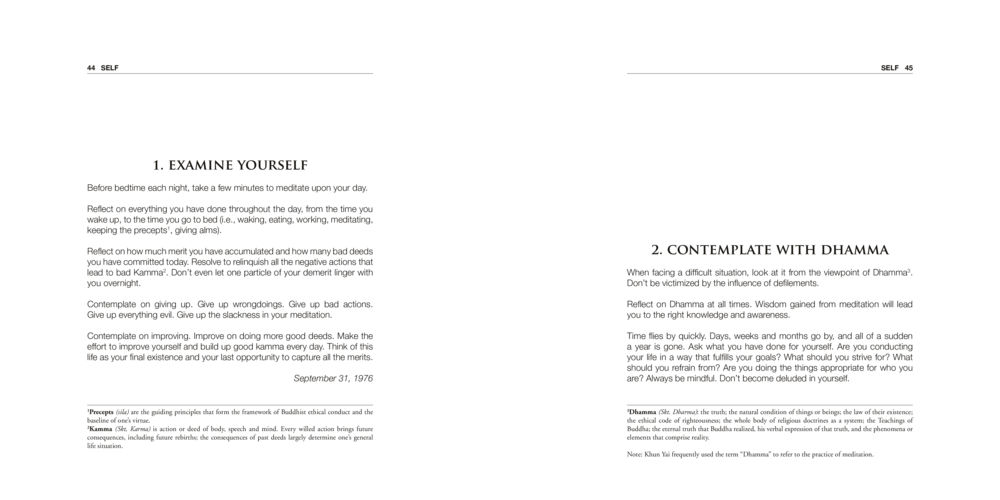Self-Reflection and Dhamma Contemplation for Personal Growth : หน้า 23/135
Khun Yai’s Teachings : หน้า 23/135 Explore the importance of self-examination and Dhamma contemplation to improve oneself and accumulate good kamma.
1 ครั้ง

สรุปเนื้อหา
In this text, readers are encouraged to engage in nightly self-reflection, evaluating their daily actions to accumulate merit and relinquish negative deeds. The practice emphasizes giving up wrongdoings and increasing good actions as a way to build positive kamma, viewing life as an opportunity to achieve maximum merits. It further highlights the importance of contemplating difficult situations through the lens of Dhamma, encouraging mindfulness and self-awareness to avoid being swayed by negative influences. The teachings stress that time is fleeting and prompt self-evaluation to ensure alignment with personal goals and ethical conduct. Dhamma is defined broadly, incorporating the truth of existence, ethical principles, and meditation practices for holistic development. For more insights, visit dmc.tv.
หัวข้อประเด็น
- Self-Reflection
- Kamma and Merit
- Dhamma Teachings
- Ethical Conduct
- Mindfulness and Awareness
- Meditation Practices







































































































































